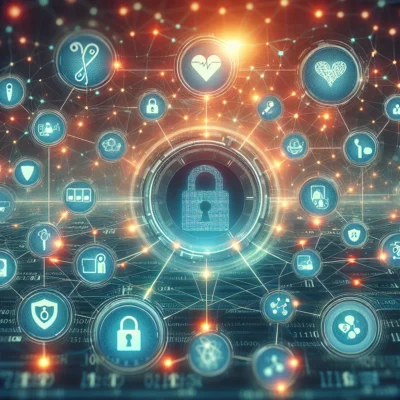In today’s digital age, the importance of safeguarding patient data across healthcare networks cannot be overstated. As healthcare facilities increasingly rely on digital systems to store and share patient information, ensuring the security of this sensitive data has become a critical concern. This blog explores the various facets of data security in healthcare, from understanding its importance to implementing best practices and looking towards future advancements.
Understanding the Importance of Data Security in Healthcare
Patient data is among the most sensitive types of information, encompassing personal identification details, medical histories, and financial information. Protecting this data is paramount for several reasons:
- Sensitivity of Patient Data: Patient records contain highly personal information that, if exposed, could lead to identity theft, financial fraud, and other malicious activities. The confidentiality of this data is crucial to maintaining patient trust and ensuring the integrity of healthcare services.
- Consequences of Data Breaches: Data breaches can have severe repercussions for both patients and healthcare facilities. For patients, breaches can lead to a loss of privacy and potential harm if their information is misused. For healthcare providers, breaches can result in financial penalties, legal action, and a tarnished reputation.
- Regulatory Requirements: Various regulations mandate the protection of patient data. In the United States, the Health Insurance Portability and Accountability Act (HIPAA) sets standards for patient data protection. Similarly, the General Data Protection Regulation (GDPR) in Europe emphasizes the need for data privacy and security. Compliance with these regulations is not just a legal obligation but a critical component of ethical healthcare practice.
Current Challenges in Data Sharing
While data sharing is essential for coordinated care and improved patient outcomes, it presents several challenges:
- Obstacles in Secure Data Sharing: Healthcare facilities often face difficulties in sharing patient data securely due to incompatible systems, lack of standardized protocols, and inadequate security measures.
- Risks of Traditional Methods: Traditional data sharing methods, such as faxing or emailing patient records, are prone to errors and unauthorized access. These methods lack the robust security features necessary to protect sensitive information.
- Balancing Accessibility and Privacy: Ensuring that patient data is accessible to authorized personnel while maintaining privacy is a delicate balance. Healthcare providers must implement systems that allow seamless data access without compromising security.
Innovative Technologies for Secure Data Sharing
Emerging technologies offer promising solutions for enhancing data security in healthcare:
- Blockchain Technology: Blockchain provides a decentralized and tamper-proof way to store and share data. In healthcare, it can be used to create secure, verifiable records that are accessible only to authorized parties.
- Encryption and Secure Protocols: Encryption is a fundamental tool for protecting data during transfer. Secure data transfer protocols, such as HTTPS and SSL/TLS, ensure that data is transmitted safely across networks.
- Cloud-Based Solutions: Cloud computing offers scalable and secure options for data storage and sharing. Many cloud providers implement rigorous security measures, including data encryption, access controls, and regular security audits.
Implementing Interoperability Standards
Interoperability is crucial for effective data sharing in healthcare:
- Concept of Interoperability: Interoperability refers to the ability of different IT systems and software applications to communicate, exchange data, and use the information that has been exchanged.
- Standards like HL7 and FHIR: Health Level Seven (HL7) and Fast Healthcare Interoperability Resources (FHIR) are standards designed to facilitate the exchange of healthcare information. These standards ensure that data is shared in a consistent and secure manner.
- Adoption of Universal Standards: By adopting universal interoperability standards, healthcare facilities can ensure seamless data sharing, reduce errors, and enhance patient care.
Best Practices for Healthcare Facilities
Healthcare facilities can adopt several best practices to enhance data security:
- Guidelines for Data Security: Facilities should implement comprehensive data security policies that cover data access, storage, and sharing. These policies should be regularly reviewed and updated.
- Regular Staff Training: Continuous training on data privacy and security protocols is essential for all healthcare staff. Training programs should cover topics such as recognizing phishing attempts, safeguarding passwords, and understanding regulatory requirements.
- Continuous Monitoring and Auditing: Regular monitoring and auditing of data-sharing practices can help identify potential security vulnerabilities and ensure compliance with security protocols.
The Future of Secure Data Sharing in Healthcare
Looking ahead, several trends and technologies are poised to transform data security in healthcare:
- Emerging Trends: Technologies such as artificial intelligence (AI) and machine learning are being harnessed to enhance data security. These technologies can detect anomalies and potential threats in real-time, providing an additional layer of protection.
- Advancements in AI and Machine Learning: AI and machine learning can automate the detection of security breaches and predict potential vulnerabilities, allowing for proactive measures to be taken.
- Collaborative Approach: A collaborative approach among healthcare facilities is essential for improving data security. By sharing knowledge and resources, healthcare providers can develop more robust security strategies and better protect patient data.
As healthcare continues to evolve, the importance of safeguarding patient data will only grow. By understanding the challenges, embracing innovative technologies, and implementing best practices, healthcare facilities can ensure the security of patient data and maintain the trust of those they serve.
